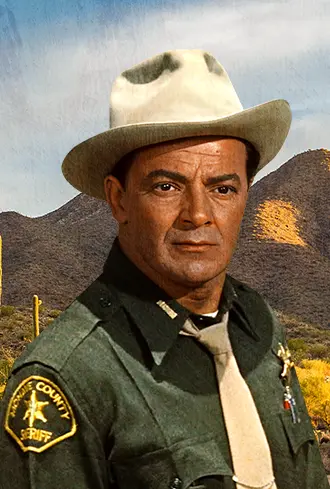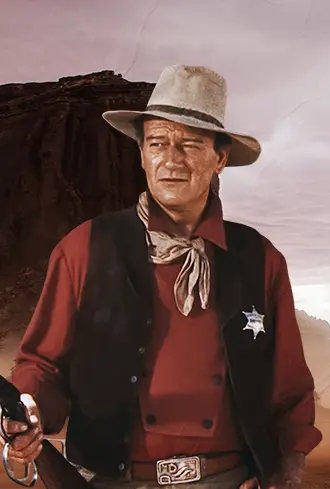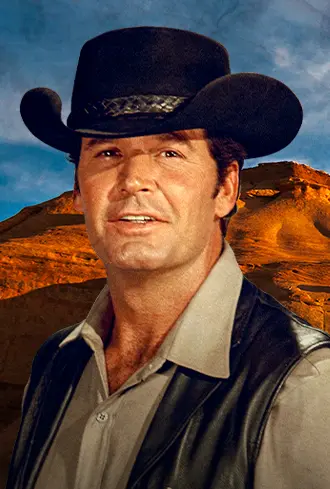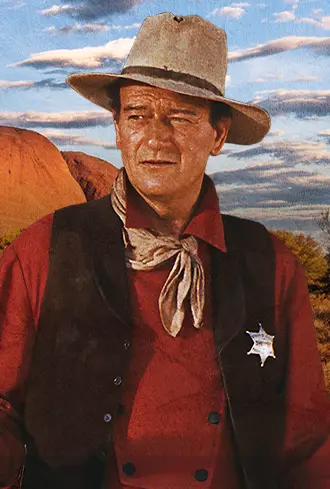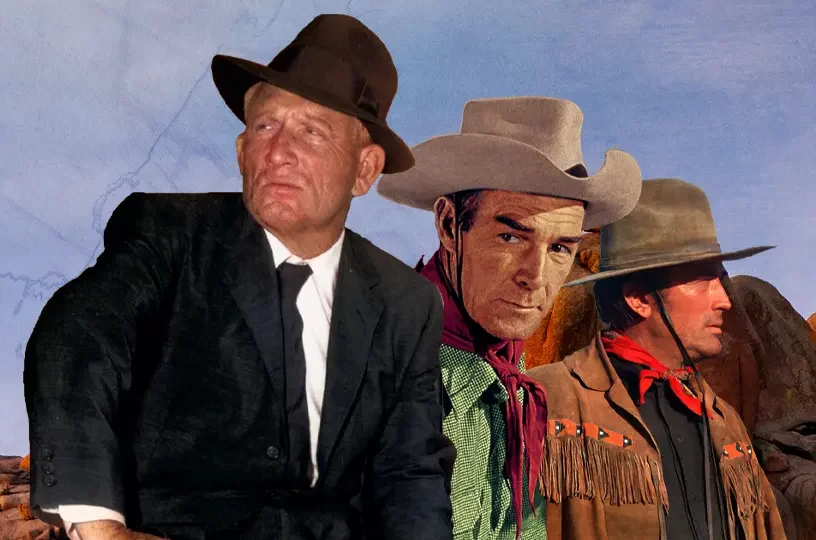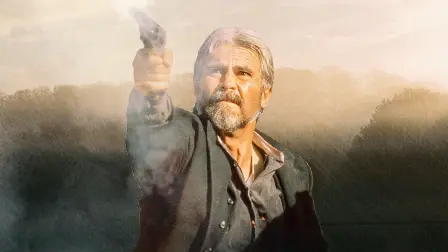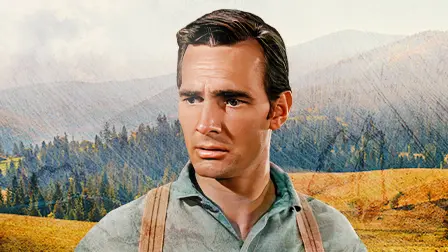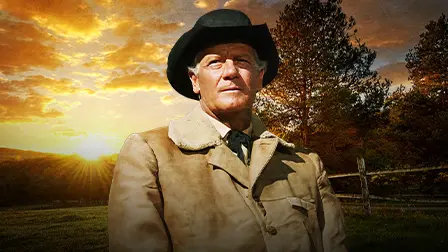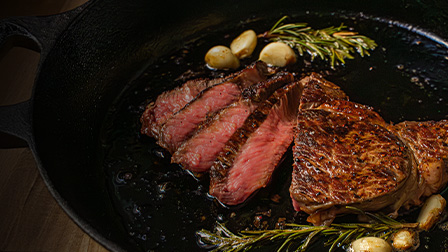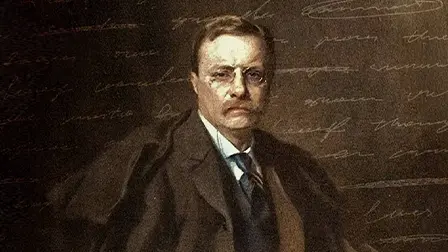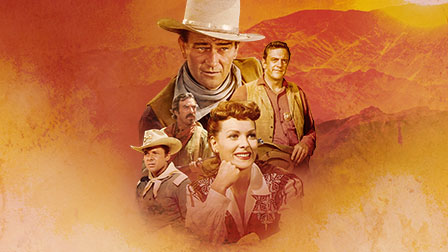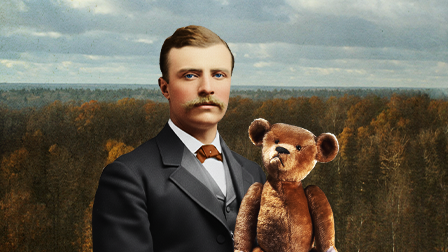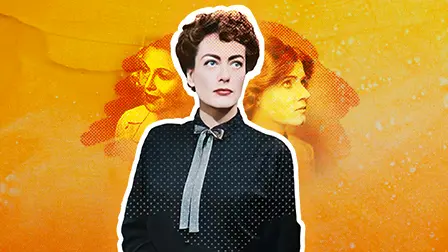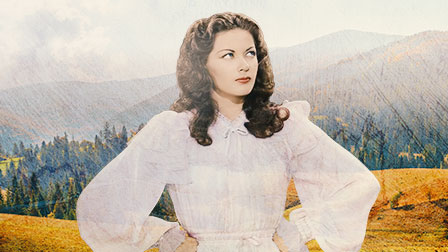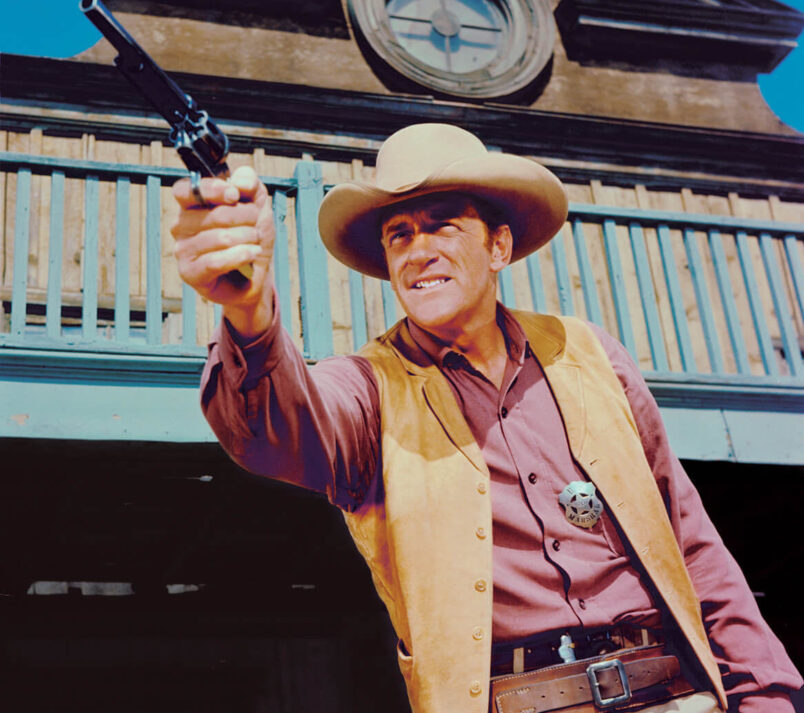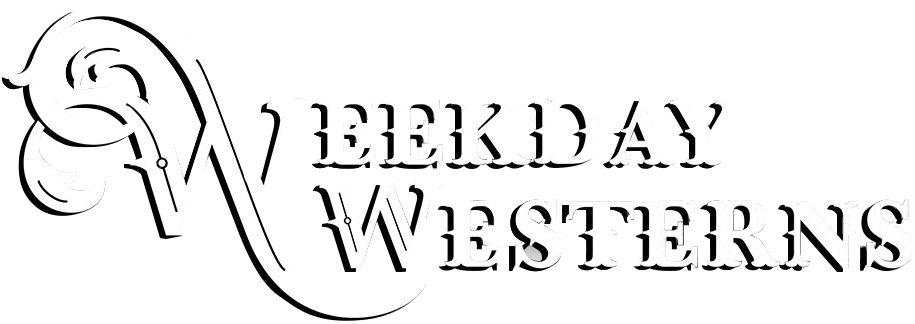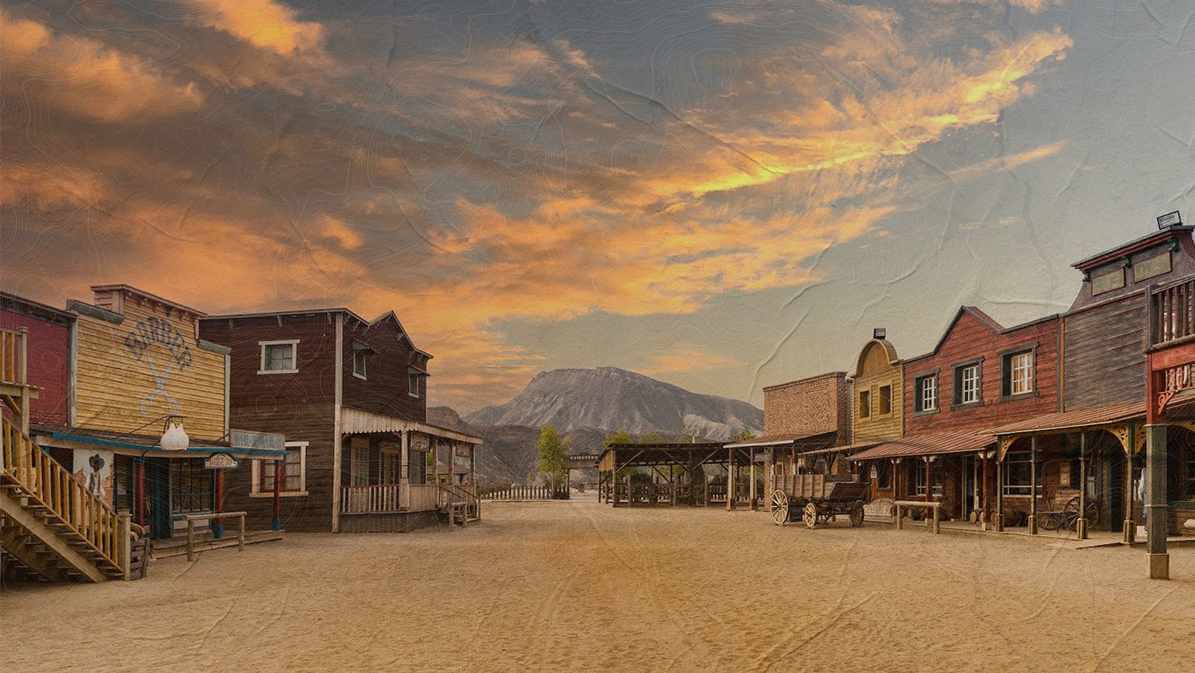Introduction
In a career that spanned six decades, Robert Mitchum was known for his charisma and antihero status. From war dramas to film noir, Westerns to romances and more, Robert Mitchum captivated audiences with his world-weary, seen-it-all acting style.
Early Life
Robert Charles Duran Mitchum was born on August 6, 1917, in Bridgeport, Connecticut. His parents were Ann Harriet (Gunderson) and James Thomas Mitchum, a shipyard and railroad worker. He was their second child, and his older sister was named Julie. When Robert was 2, their father was tragically killed in a railroad accident.
Ann was awarded a government pension following his death and soon realized that she was pregnant. Robert’s younger brother, John, was born in September 1919. She would later marry a British Army major named Hugh Cunningham Morris. In 1927, Ann and Hugh had another child named Carol. The family moved from Connecticut to New York, and finally to Delaware.
By the time Robert was a teenager, he was known as a prankster and a troublemaker. He often got into fistfights and had a general disregard for authority. His mother sent him to live with his grandparents when he was 12 in Felton, Delaware. However, that didn’t last long since Robert was kicked out of school for getting into a fight with the school principal. After that, Robert went to live with his sister in New York City’s Hell’s Kitchen neighborhood, where he attended high school. After his expulsion from that school, he took off to see the country by riding the rails.
Robert traveled around the United States, hopping on freight cars, and taking odd jobs that included ditch digging and professional boxing. At age 14, he was arrested for vagrancy and put in a local chain gang in Savannah, Georgia. As soon as he could, Mitchum escaped and went home to his family in Delaware.
When he was 16, he met 14-year-old Dorothy Spence—the woman he would one day marry. For now, though, he went back to riding the rails and took them all the way to California.
 Early Career, Marriage, and WWII
Early Career, Marriage, and WWII
Robert arrived in California when he was 19 years old. His sister, Julie, had gone to the West Coast to act in movies, and the rest of her family soon followed.
At first, Robert worked as a ghostwriter, but with encouragement from his sister, he soon joined The Players Guild of Long Beach. He worked there as a stagehand and bit player in company productions. He also wrote several short pieces that were performed by the guild, as well as song lyrics and monologues for his sister’s nightclub performances.
In 1940, Robert returned to Delaware to marry Dorothy. The couple moved back to California and Robert gave up his acting career when his first son, James, arrived. Two more children followed: his second son, Chris, and a daughter, Petrine (also known as Trina).
To support his growing family, Mitchum found a job as a machine operator during WWII with the Lockheed Aircraft Corporation. However, the noise from the machinery damaged his hearing and the job-related stress caused him to suffer a nervous breakdown and temporary blindness.
Once recovered, he went back to acting, picking up roles as an extra and a few small speaking parts. His first break came when he was hired to play minor villains in several films in Paramount’s “Hopalong Cassidy” western series from 1942-1943. His first on-screen credited role was as a Marine private in Randolph Scott’s 1943 movie, Gung Ho!
Mitchum continued to land roles in numerous productions for different studios. Director Mervyn LeRoy was so impressed with his work on the film, Thirty Seconds Over Tokyo, that Mitchum was signed to a seven-year contract with RKO Radio Pictures. For the next few years, he would appear in Westerns, including the successful film, Nevada.
His big break came in 1945 with a supporting actor role in The Story of G.I. Joe. He portrayed the beleaguered officer Bill Walker, a soldier whose determination never wavers despite the difficulties of life at war. This film became an instant critical success and earned Robert Mitchum an Academy Award nomination for Best Supporting Actor.
Shortly after filming ended, Mitchum was drafted into the United States Army. He served as a medic at Fort MacArthur in California. Although he downplayed his time there, Robert served honorably, was discharged as a Private First Class, and received the World War II Victory Medal.
Film Noir, Westerns, and Stardom
Robert Mitchum’s signature acting style was one of calm, cool disinterest, and this made him the perfect leading man for the film noir genre. From 1944 to 1962, he starred in many film noir movies, including Undercurrent, Pursued, Crossfire (which earned five Academy Award nominations), and Out of the Past(considered one of the greatest film noir movies of all time). In The Night of the Hunter, Mitchum starred as an evil criminal posing as pious preacher Reverend Harry Powell. Many critics consider Mitchum’s performance in this film one of the best of his career (it was also Robert Mitchum’s favorite role).
But just as his career was really taking off, Mitchum and actress Lila Leeds were arrested for marijuana possession. Mitchum served a week in the county jail and an additional 43 days at a prison farm in California. His conviction was later overturned by the courts since it was exposed as a setup.
 Although some feared that his career would be damaged, his jail time only increased his bad boy reputation and his popularity soared. Films released right after his arrest were box-office hits, including Rachel and the Stranger, The Red Pony (1949 version with Myrna Loy), and The Big Steal.
Although some feared that his career would be damaged, his jail time only increased his bad boy reputation and his popularity soared. Films released right after his arrest were box-office hits, including Rachel and the Stranger, The Red Pony (1949 version with Myrna Loy), and The Big Steal.
Stardom came calling in the 1950s, with River of No Return (with Marilyn Monroe), His Kind of Woman (with Jane Russell), Heaven Knows, Mr. Allison, and The Sundowners (both co-starring Deborah Kerr). The Sundowners received five Oscar nominations and Mitchum received the National Board of Review Award for Best Actor.
His performance as the grudge-bearing, homicidal ex-con in Cape Fear cemented Robert Mitchum’s reputation as a man who could portray cold, calculating characters with wit, style, and ease.
From 1955 to 1962, Mitchum and his wife created and ran DRM Productions (Dorothy and Robert Mitchum Productions). They contracted with United Artists to produce five films, but only four were made. These included Bandido (an action/adventure film), Thunder Road (which Mitchum and his son James co-starred in—and which Mitchum produced, co-wrote, and helped direct). The last two films produced by DRM were The Wonderful Country in 1959 and A Terrible Beauty (also known as The Night Fighters) in 1960.
Mitchum also appeared in mainstream box-office hits that included Not as a Stranger (a film noir drama that cast Mitchum against type as an idealistic young doctor); The Enemy Below and The Last Day—a couple of WWII classics; and El Dorado—a Western co-starring John Wayne.
Musical Talent
Unlike many celebrities, when Mitchum’s film character sang a song, it was really his voice. Robert Mitchum was a talented singer and songwriter, and he sang his own songs in Rachel and the Stranger, River of No Return, and The Night of the Hunter. He also sang the title song for Young Billy Young in 1969.
After working on location in the Caribbean, Mitchum became such a big fan of Calypso music that he decided to record his own album. So, in 1957, he released “Calypso…Is Like So.” Mitchum’s natural singing talent—and ability to imitate accents and slang—made this album a fun and creative outlet for him.
In 1958, Mitchum recorded “The Balled of Thunder Road,” which broke into the Billboard Pop Singles chart at #69. Although he waited until 1967 for his next album, That Man, Robert Mitchum, Sings, he had two hits that made it onto the charts. “Little Old Wine Drinker Me” landed at #9 on the Country Music charts, and “You Deserve Each Other” made it to #55.
 Later Career
Later Career
As the 1980s began and film opportunities dwindled, Robert Mitchum found new success on television. He starred in the 1983 miniseries, The Winds of War, and then starred in the sequel, War and Remembrance, in 1988. He also starred in the miniseries North and South in 1985; was the guest host on Saturday Night Live in 1987; and appeared in Scrooged in 1988.
He continued appearing in films and television shows until the mid-1990s. His final projects included narrating the Western, Tombstone, and appearing as a detective in Martin Scorsese’s remake of Cape Fear. His final film was James Dean: Race with Destiny.
Life and Legacy
After a lifetime of heavy smoking, Robert Mitchum died on July 1, 1997, of lung cancer and emphysema. He was survived by Dorothy, his childhood sweetheart and wife of 57 years, his three children, and grandchildren.
Many people underestimated Mitchum’s formidable talent—especially since he scoffed at those who called acting a hard job. But critics and fans alike now recognize his towering screen presence and acting ability. In fact, he’s rated #23 on the American Film Institute’s list of the greatest male actors of classic American cinema.
Although Robert Mitchum is no longer with us, his body of work lives on. See for yourself how this calm, cool, and seemingly indifferent actor could make it all look so easy…and yet, make every part he played so unforgettable.
Suggest a Correction
We strive for accuracy and fairness. But if you see something that doesn’t look right, click here to contact us!

